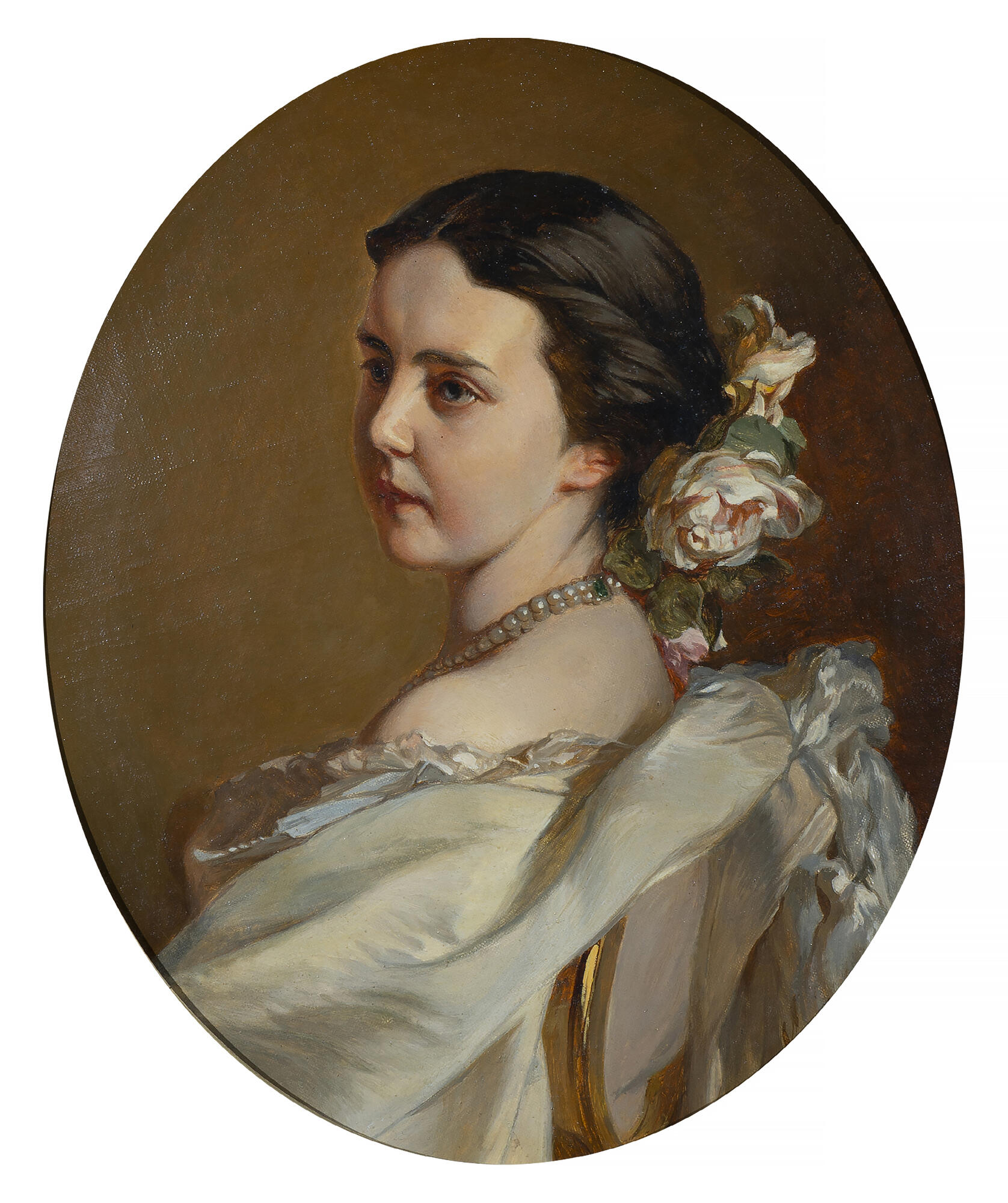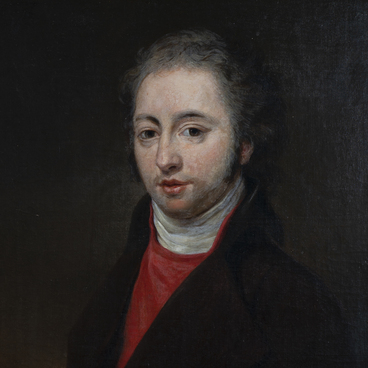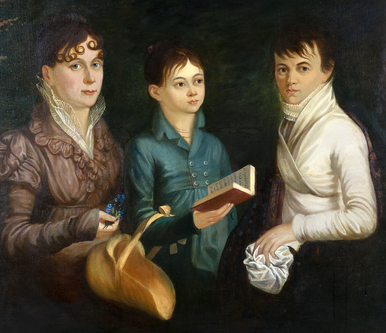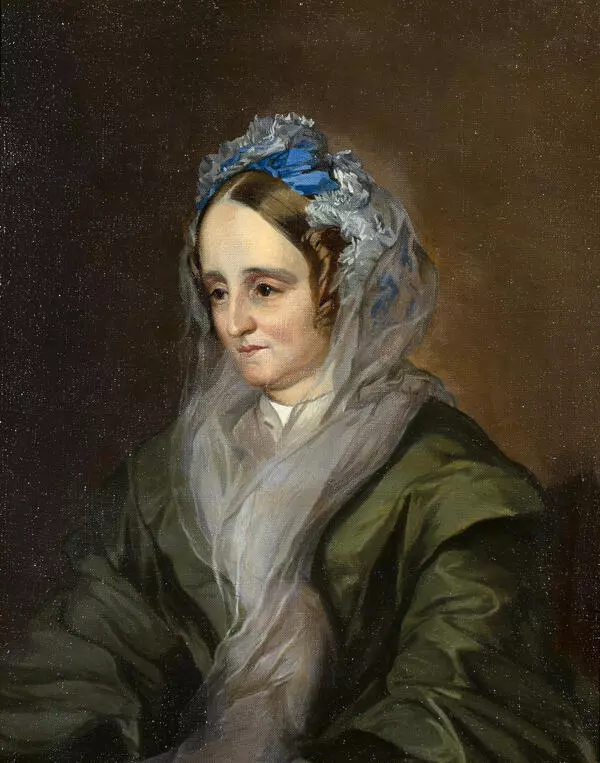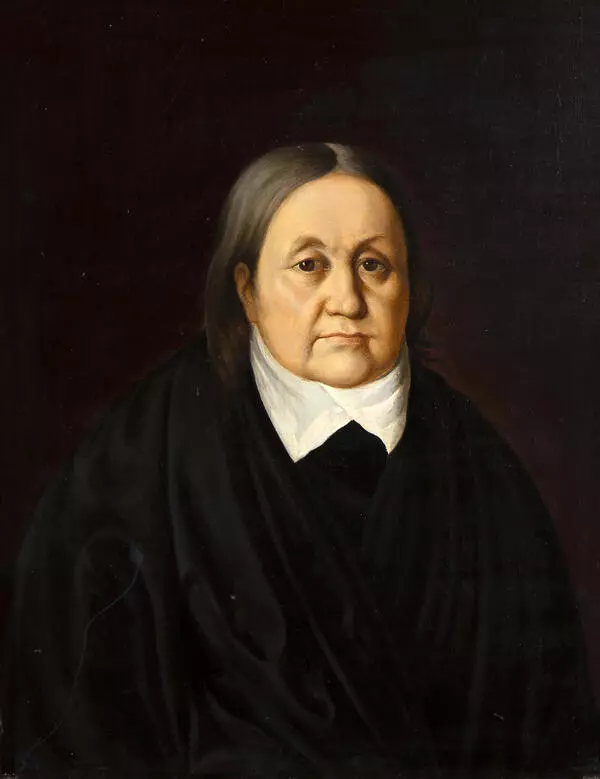Ekaterina Tyutcheva was the poet’s youngest daughter from his first marriage and a lady-in-waiting at the imperial court. In the portrait, she is featured at the time of her youth, when Leo Tolstoy was in love with her. They met in Moscow, at a literary soiree of Nikolai Sushkov, who was married to Fyodor Tyutchev’s sister.
After graduating from the Smolny Institute of Noble Maidens, Ekaterina lived with her aunt Daria Sushkova. She was the first person to read Tolstoy’s early works, and he appreciated her “cold, woman”s mind”. Ekaterina Tyutcheva wrote novellas and short stories for children. Her English translations of the sermons of Metropolitan Philaret of Moscow were highly celebrated in Europe; they introduced the British to Russian theological thought.
In her letters, Ekaterina Tyutcheva often mentions new literary publications and evaluates some of them as a literary critic. For example, in one of the letters she wrote to her elder sister Anna, “They say that Turgenev is going to publish his novel “On the Eve” in a journal in January. I think you will see Turgenev, as he will soon go to Petersburg, as far as I know.’
The Tyutchevs got acquainted with some of Turgenev’s novel manuscripts, “Yesterday we read a chapter from a new novel that Turgenev is currently writing and which is entitled “Fathers and Sons”. The chapter is truly remarkable for the zest and verisimilitude it was written with. Four or five of the minor characters are brilliant. I don’t know what the novel will be like in its final edition, and I have to admit that although Turgenev’s novels are charming in details, they never appeal to my taste as a whole, ’ Ekaterina wrote to her sister Daria.
In the last years of her life, Tyutcheva bought an estate in the village of Varvarino, Vladimir governorate. There she opened a school for peasant children and an outpatient clinic for peasants.
Of interest is Tyutcheva’s reaction to Leo Tolstoy’s ‘Family Happiness’ and his novel ‘War and Peace’. She wrote, ‘I finished Tolstoy’s story, which is charming, it is life itself.’ And here is what she wrote about the novel “War and Peace”, “In the evenings, my aunt and I reread “War and Peace”, and I admire Tolstoy and enjoy his genius novel twice as much as in the first read. What a delight! I have not read anything like this in any language — yes, a Russian could write something like this.’
After graduating from the Smolny Institute of Noble Maidens, Ekaterina lived with her aunt Daria Sushkova. She was the first person to read Tolstoy’s early works, and he appreciated her “cold, woman”s mind”. Ekaterina Tyutcheva wrote novellas and short stories for children. Her English translations of the sermons of Metropolitan Philaret of Moscow were highly celebrated in Europe; they introduced the British to Russian theological thought.
In her letters, Ekaterina Tyutcheva often mentions new literary publications and evaluates some of them as a literary critic. For example, in one of the letters she wrote to her elder sister Anna, “They say that Turgenev is going to publish his novel “On the Eve” in a journal in January. I think you will see Turgenev, as he will soon go to Petersburg, as far as I know.’
The Tyutchevs got acquainted with some of Turgenev’s novel manuscripts, “Yesterday we read a chapter from a new novel that Turgenev is currently writing and which is entitled “Fathers and Sons”. The chapter is truly remarkable for the zest and verisimilitude it was written with. Four or five of the minor characters are brilliant. I don’t know what the novel will be like in its final edition, and I have to admit that although Turgenev’s novels are charming in details, they never appeal to my taste as a whole, ’ Ekaterina wrote to her sister Daria.
In the last years of her life, Tyutcheva bought an estate in the village of Varvarino, Vladimir governorate. There she opened a school for peasant children and an outpatient clinic for peasants.
Of interest is Tyutcheva’s reaction to Leo Tolstoy’s ‘Family Happiness’ and his novel ‘War and Peace’. She wrote, ‘I finished Tolstoy’s story, which is charming, it is life itself.’ And here is what she wrote about the novel “War and Peace”, “In the evenings, my aunt and I reread “War and Peace”, and I admire Tolstoy and enjoy his genius novel twice as much as in the first read. What a delight! I have not read anything like this in any language — yes, a Russian could write something like this.’
